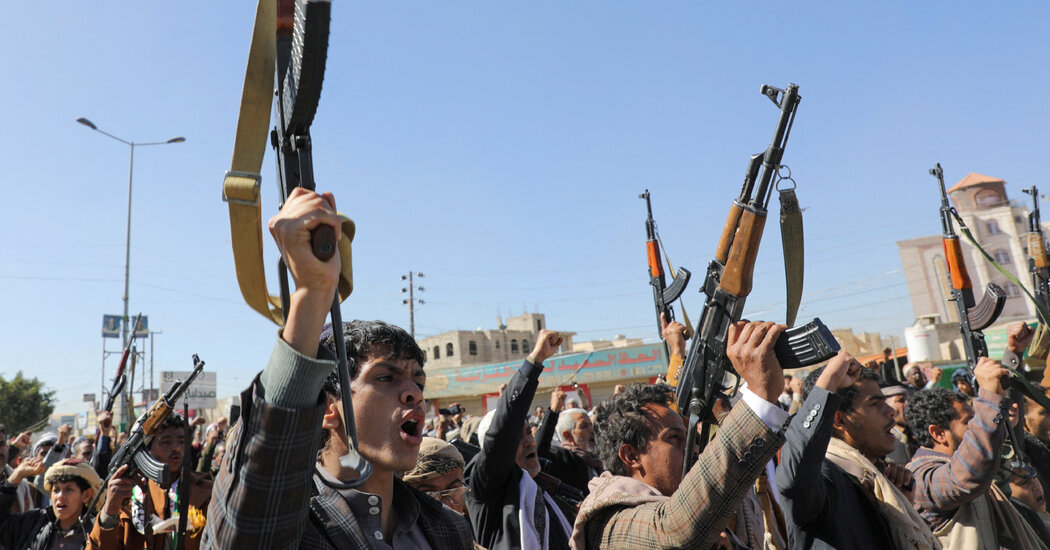The United States and five of its allies on Thursday carried out military strikes against more than a dozen targets in Yemen controlled by the Iranian-backed Houthi militia, in an expansion of the war in the Middle East that the Biden administration had sought to avoid for the past three months.
The American-led air and naval strikes came in response to more than two dozen Houthi drone and missile attacks against commercial shipping in the Red Sea since November, and after warnings to the Houthis in the past week from the Biden administration and several international allies of serious consequences if the salvos did not stop.
On Thursday night, President Biden called the strikes a “clear message that the United States and our partners will not tolerate attacks on our personnel or allow hostile actors to imperil freedom of navigation in one of the world’s most critical commercial routes.”
In a statement, he warned: “I will not hesitate to direct further measures to protect our people and the free flow of international commerce as necessary.”



It’s like the run-up to a fight where one guy is super wild and aggressive, and one guy is doing everything he can to deescalate and talk the other person down. Usually means the second guy has a lot more experience.
Really? Wouldn’t that look like a Teacup Poodle going up against a Great Dane?
I mean… there’s a saying in prison, “Anyone can kill you.” Basically, don’t get cocky just because you’re stronger. Someone who’s really determined can fuck up anyone’s day, and the US has a lot to lose.
I think that’s at the root of the carefulness the US is trying to display. However, all that said, yeah we can fuck ‘em up. I think feeling like kings from winning some real holy-shit-they-can’t-stop-us-taking-the-capital shooting wars, and the real injustice of the Palestinians’ suffering in Gaza, and feeling like they have some serious regional backing from Iran, may have led them to not really be fully aware of how thoroughly drone strikes and cluster bombs could fuck up their whole country without the US even needing to take its eyes off the main events in Gaza and Taiwan.
It’s easy to feel like a king while it’s mostly other people on the receiving end of the bullets.
Well, they can certainly cause a lot of trouble in the region that we really don’t need right now. That’s not nothing. And they kind of already are doing just that.
deleted by creator